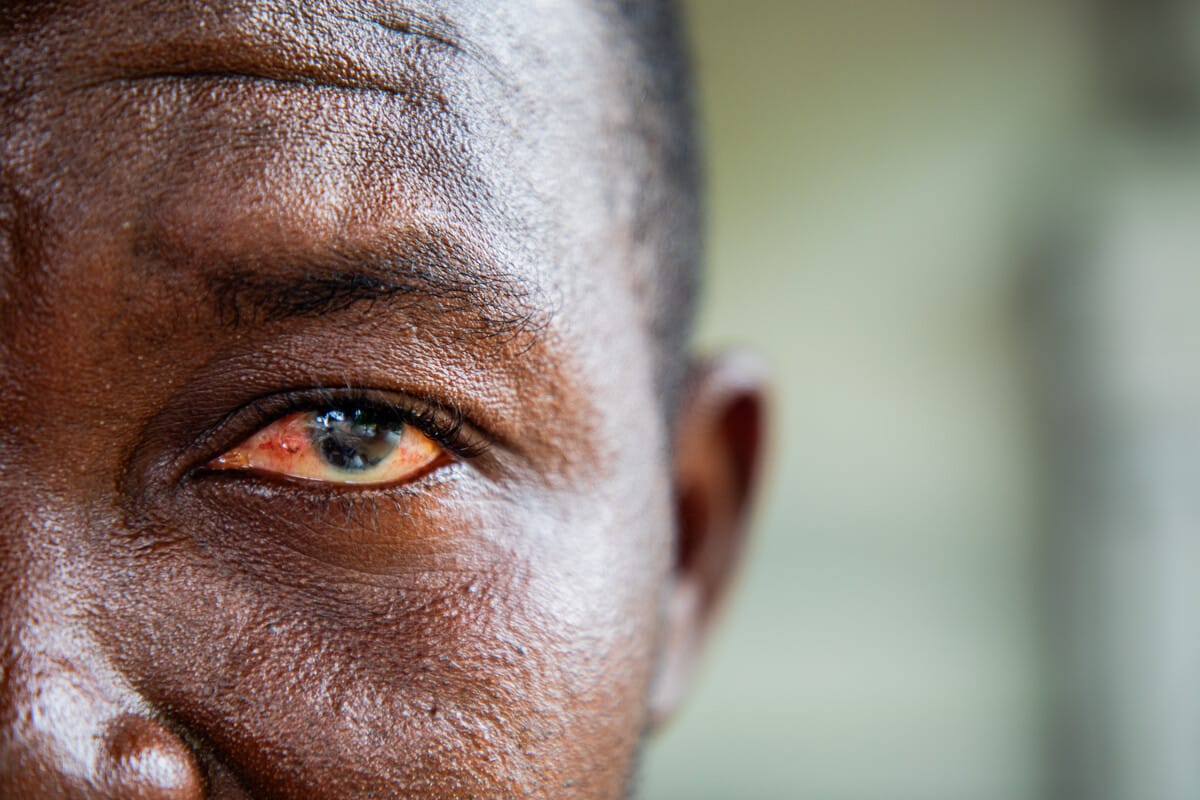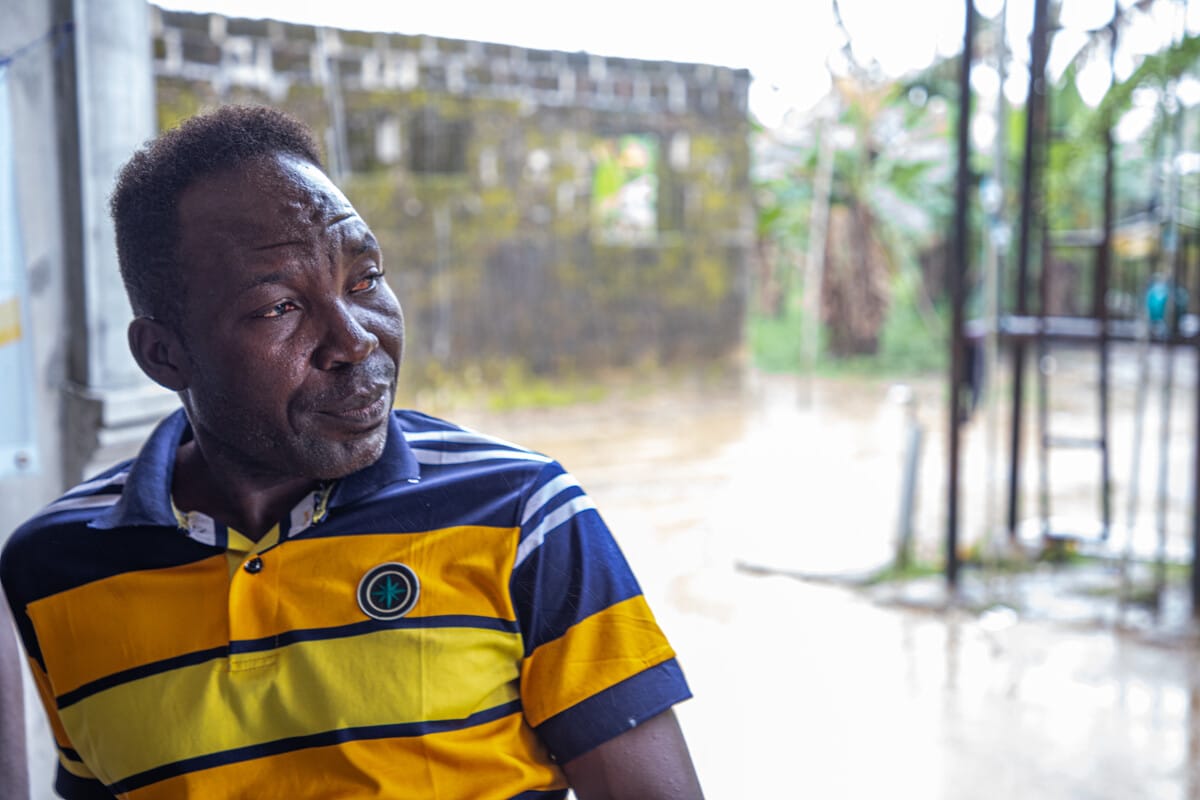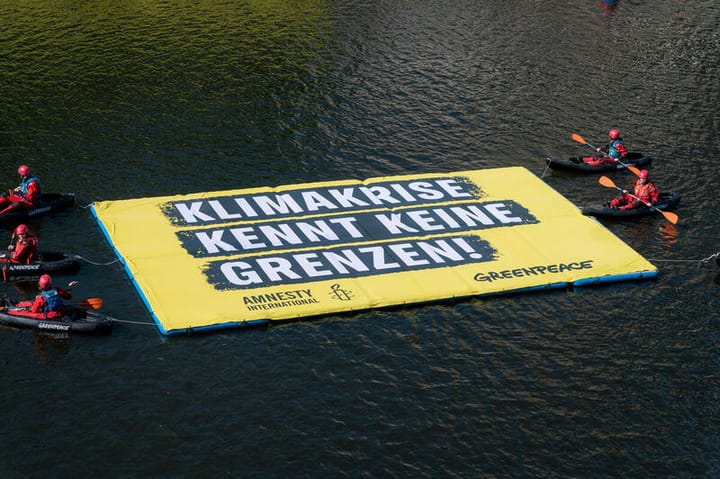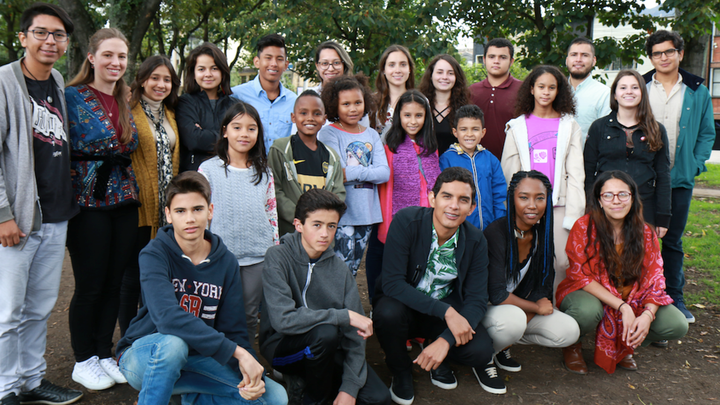The unique character of African climate litigation

Jonah Gbemre and his family have farmed and fished in Delta State, Nigeria, for generations. It is also where Shell’s Nigerian subsidiary (SPDC) has long been extracting oil and burning off the methane by-products, a practice known as flaring.
In 2005, acting for himself and on behalf of his community, the Iwherekan, Gbemre filed a claim against SPDC, Nigeria’s attorney general and the Nigerian National Petroleum Corporation (NNPC).
Gbemre argued that his fundamental rights to life and dignity under the Nigerian constitution and the African Charter on Human and Peoples Rights were being breached, because of the impacts flaring was having on the health of local people and their livelihoods. Gbemre himself has suffered recurring eye problems which he attributes to decades of exposure to flaring.

It was the first lawsuit to raise the issue of climate change in an African court. Later the same year a court upheld the claim, ordering flaring to stop.
From the prevailing academic standpoint, this is only one of a handful of climate lawsuits filed in Africa. The Sabin Center for Climate Change Law and Policy’s database lists just 16 cases - 0.6% of the global total - and most of those are in South Africa. Last year, a symposium called Greening Judiciaries in Africa concluded that there was a dearth of environmental and climate litigation on the continent.
In some ways, this is understandable.
African nations have historically contributed little to the global climate crisis and continue to play a tiny part, so the kind of framework lawsuits against states like that brought by Urgenda against the Netherlands do not have the same urgency or moral weight. Nor do they necessarily support the shift to a greener economy in countries with fewer resources and infrastructure limitations.
Africa is also playing catchup with the development of national climate laws, which provide the legal basis for a large proportion of existing climate litigation, while the Greening Judiciaries symposium identified low levels of awareness of the issues among the judiciary and a lack of specialised courts.
Furthermore, bringing a lawsuit is expensive and risky, and requires a solid body of scientific evidence to back the claims made, all of which can be a particular problem in Africa.
But there is more to climate litigation in Africa than first meets the eye.
For one, there are likely more cases that have not been documented or researched. Experts say finding out what is going on, particularly in the lower courts, can be difficult because of language barriers, a lack of reporters on the ground and judiciary websites that don’t get updated often.
There is also a lack of wider knowledge about existing cases - even landmark ones like that brought by Gbemre in Nigeria.
Among other things, Gbemre argued that the practice of flaring emits greenhouse gases, which contributes to climate change and could lead to further rights violations. Although the court did not make any specific finding on this point, Dr Eghosa Ekhator, senior lecturer in law at the University of Derby, says the fact that greenhouse gases were raised makes this one of the first climate litigation success stories. And the court’s declaration that the defendants directly violated the claimants’ rights “is significant in signalling a very early judicial receptiveness to tackling private parties’ contribution to climate change with a robust rights-based agenda”.
Another interesting ruling, in which a court rejected an attempt by Mobil’s Nigerian subsidiary to argue that its penalties for gas flaring were tax deductible, also mentioned climate change. (It was not the only fossil fuel firm to try this tactic).
"There is more contentious activity in Africa than has been recognised”
A new book, Climate litigation and justice in Africa, argues for a broader definition that includes cases not explicitly about climate change but which do have an impact on mitigation or adaptation. It is an approach that is being increasingly argued for Global South countries.
Seen this way, a successful lawsuit such as that brought by groundWork and Vukani Environmental Justice Movement in Action, which forced the South African government to tackle Mpumalanga province’s deadly air pollution levels and stop breaching their constitutional rights, could be seen as a climate case. That’s because the coal plants causing the air pollution crisis are also the country’s main sources of greenhouse gas emissions.
You can also “sift out climate issues” from another Nigerian case, says Dr Ekhator. This one was also brought against NNPC but this time by the Centre for Oil Pollution Watch, which argued that the company had neglected its pipelines in Abia State, leading to oil spills and contaminating rivers.
The book’s editors - Kim Bouwer, Uzuazo Etemire, Tracy-Lynn Field and Ademola Oluborode Jegede - say “there is more contentious activity in Africa than has been recognised”, which “highlights the need for closer attention to how the local (and regional) courts are engaging with climate change issues, whether explicit or implicit”.
Dr Etemire, associate professor of law at the University of Port Harcourt, says the reason climate change is often not the main issue is “mainly because the judiciary in Nigeria, and I think in most of Africa, has less appetite to seriously discuss such seemingly abstract [issues]”. Litigation is instead being taken for more immediate and tangible reasons.
Cases can also take a long time to go through the system. A climate lawsuit in Uganda was filed more than a decade ago by a group of young people, supported by NGO Greenwatch, who argued their government was failing to preserve a healthy atmosphere as a public resource for both present and future generations. The case was delayed because of backlogs at the court and frequent adjournments, says Greenwatch, but it is finally going to court this year - a hearing on the merits has been scheduled for May.
Enforcement is also a problem. Even Gbemre’s legal success was not upheld, with gas flaring continuing largely unabated in the Delta region - a problem NGOs such as ActionAid have been trying to bring attention to. Meanwhile, his case awaits the result of an appeal, although Shell recently sold its subsidiary SPDC.
But Dr Ekhator says rulings such as these, even if not strictly enforced, can be used to shame governments or as a bargaining tool, and often have less obvious influence on the workings of environmental agencies.
However it is defined, the amount of climate litigation in Africa is likely to grow.
In recent years countries including South Africa, Kenya and Uganda have passed framework climate acts, which could set the legal basis for future lawsuits. Dr Ekhator, who co-edited one of the book’s chapters about multinationals in Nigeria, says Nigeria’s 2021 Climate Change Act, for example, makes climate litigation “very, very feasible”. The Pan-African Parliament has also been developing a model climate change law.
Kenya has also set up a new environmental court - the first specialised court in Africa focused on environmental matters - which explicitly includes climate change disputes.
Corporate litigation
In many instances, says Dr Bouwer, assistant professor in law at Durham University, bringing corporate cases can be a more fruitful litigation route than challenging public bodies in Africa.
Such lawsuits might not even be filed in Africa; victims of environmental and human rights abuses perpetrated by European multinationals operating abroad are finding European courts increasingly open to considering their cases – and finding in their favour. However, some academics have raised concerns about the legitimacy and effectiveness of this tactic.
Adaptation cases could also be on the rise, because much of Africa is particularly vulnerable to the impacts of climate change and there are fewer resources to manage these changes, alongside the continent’s wider history of environmental injustice.
In October, a hearing was held in a case brought by residents of Ng’arwa and Bartum who were displaced by flooding from Lake Baringo. They are seeking compensation from the Kenyan government, blaming it for failing to adopt adaptation strategies that could have mitigated their plight and protected their lives, health and properties. Experts say it is the first lawsuit in Africa to test a government’s responsibility for helping its citizens cope with the impacts of climate change - and is unlikely to be the last.
And in Uganda, 48 survivors of a fatal landslide in Bududa region are arguing that the government had been aware of the risk of landslides for many years, but had not put in place any early warning systems.
“The more countries like Nigeria and others wean themselves off these companies and diversify their economies, we may begin to see the court award sizable damages against some of these companies”
Dr Etemire thinks there will also be more opportunities to make claims for compensation. At present, courts often take “a very conservative approach to the award of damages” which means payouts in successful cases can be small. Judges can also be reluctant to stop polluting activities, because of the fossil fuel industry’s grip on a country’s economy, he says. He notes that the judge who made the landmark Gbemre judgment was “immediately transferred to a very remote area”.
“The more countries like Nigeria and others wean themselves off these companies and diversify their economies, we may begin to see the court award sizable damages against some of these companies,” says Dr Etemire.
Judges have also been open to looking beyond their own jurisdisctions - something that is happening in an unprecedented way around the world when it comes to climate litigation. Dr Etemire says the decision in the Centre for Oil Pollution Watch case, which established that NGOs can have standing to bring environmental and health cases for the public good, was made partly on the basis that Nigeria must “not be left behind” other countries.
On the flip-side, some lawyers think African countries will see more investment disputes brought by companies over stricter emissions regulations; such secretive arbitration systems have already been accused of undercutting climate action around the world. However, an update to the African Continental Free Trade Area currently under discussion is expected to have a much better balance of investor rights and obligations.
Some are looking to the African Union for top-level guidance. The African Commission on Human and Peoples’ Rights is exploring the impact of climate change on human rights in Africa, and a draft copy of its report discusses climate litigation in some depth.
Even in the absence of explicit legal frameworks, Dr Ekhator argues that existing mechanisms and treaties could form the basis of African lawsuits. For example the African Charter, which underpins the human rights frameworks of regional African courts, provides for the right to a healthy environment which could be interpreted as including the right to a safe climate.
Last of the Mohicans
Another move that could provide a legal spark for future litigation on the continent is the development of an advisory opinion on climate change by the African Court on Human and Peoples' Rights.
Alfred Brownell, an environmental rights activist and lawyer from Liberia who co-founded public interest law NGO Green Advocates International, is working on just such a petition as lead campaigner for the African Climate Platform. He describes it as “the last of the Mohicans”, given that other major legal institutions - the International Court of Justice, Inter-American Court of Human Rights and the International Tribunal for the Law of the Sea - are already working on advisory opinions on climate change.
But Brownell says the African court request is different as it is being driven by civil society. As well as around 40 lawyers, 100 different civil society groups are involved, including many young and Indigenous people representing countries across the African continent, from Madagascar to Malawi, Kenya to South Sudan. “It’s not just a lawyerly driven process,” he told The Wave.
Above all, the authors of the book argue that African climate litigation must be informed by African priorities and values, and serve the purposes and needs of its peoples.
Climate litigation in Africa has got its “own character and personality”, says Dr Bouwer. “We really wanted to resist the idea that Africa can now learn from the Global North and start doing this Global North thing. It doesn't want to do the same things and doesn't need to do the same things.”


